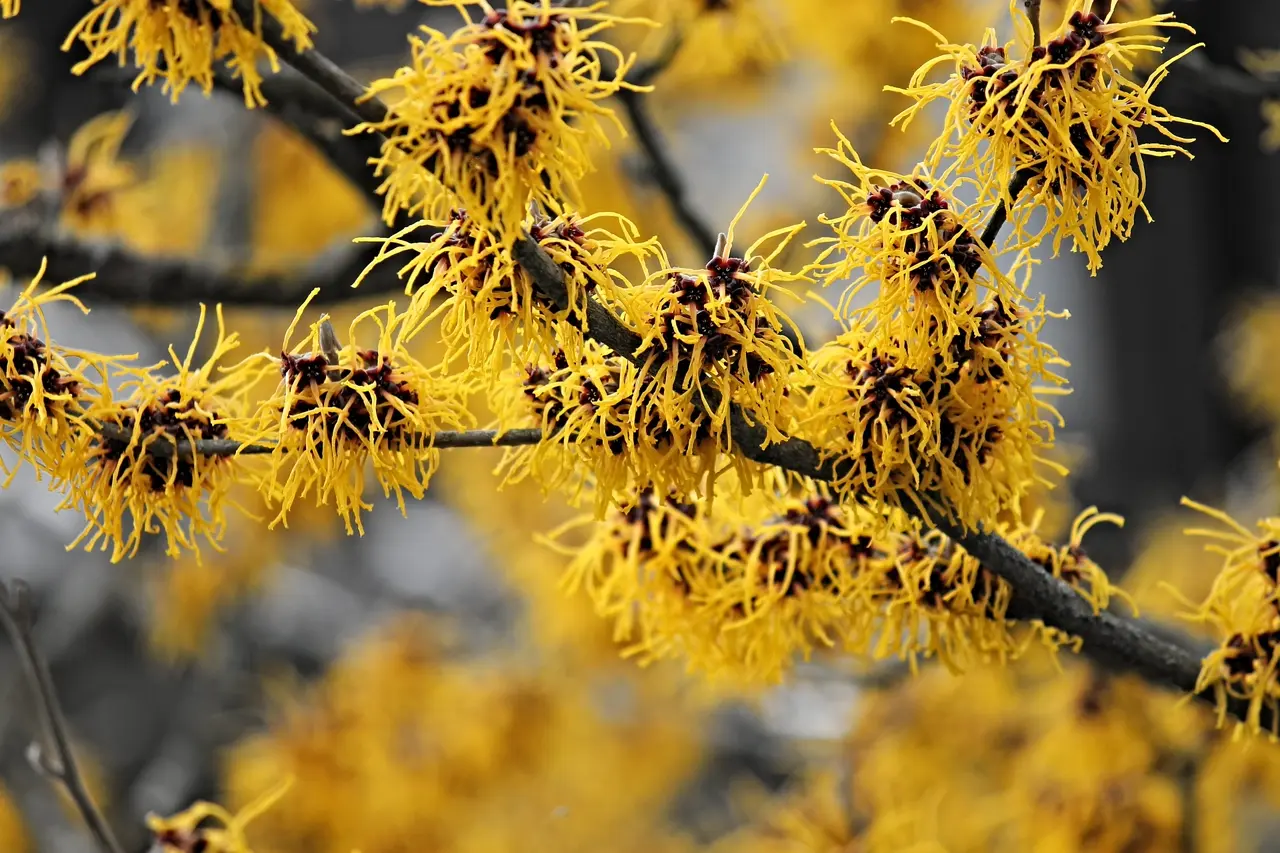Benefits of witch hazel as a dietary supplement
Witch hazel, also known by its scientific name Hamamelis virginiana, is a shrub native to North America. Native Americans have used witch hazel for centuries for its medicinal properties. Today, this plant has become popular as a dietary supplement, due to its health benefits. In this article, we'll look at the benefits of witch hazel, its origin and how it can be used as a dietary supplement.
Origin of witch hazel
Witch hazel is native to North America, mainly the United States. This shrub can reach a height of 5 metres and thrives particularly well in damp forests and the valleys of the Appalachians. Its common name, witch hazel, comes from the Greek word "hamamelis", meaning "shrub with bursting fruit", in reference to the explosion of its seed capsules.
Composition of witch hazel
Witch hazel contains numerous active compounds such as tannins, flavonoids and essential oils. Tannins are polyphenols that have astringent, anti-inflammatory and antioxidant properties. Flavonoids are antioxidants that can help protect cells against damage caused by free radicals. Witch hazel also contains essential oils that give it its distinctive fragrance.
Use as a food supplement
Witch hazel is most often used as a dietary supplement in the form of capsules, liquid extracts or tinctures. It is often combined with other plants to reinforce its effects or in specific formulations according to need.
Benefits for blood circulation
Witch hazel is often used to relieve blood circulation problems such as varicose veins, haemorrhoids and heavy legs. The tannins present in witch hazel can help to constrict blood vessels, thereby improving blood circulation. Clinical studies have shown that taking witch hazel as a dietary supplement can help reduce the symptoms of venous insufficiency and relieve related leg pain.
Key word : blood circulation
Anti-inflammatory properties
The tannins and flavonoids in witch hazel have anti-inflammatory properties that can help relieve pain and inflammation. As a dietary supplement, it can be useful for treating skin inflammation, minor burns, bruising and skin irritations.
Key words: anti-inflammatory, pain, skin irritations
Antioxidant action
Witch hazel is rich in flavonoids, natural antioxidants that can help protect cells from free radical damage. The antioxidants in witch hazel can also help boost the immune system and improve overall health.
Key words: antioxidants, immune system, health
Treatment of coughs and sore throats
Witch hazel's astringent properties enable it to tighten tissues and reduce secretions. This can be useful for treating coughs and sore throats. As a dietary supplement, it can be taken as an herbal tea to relieve the symptoms of respiratory tract ailments.
Key words : cough, sore throat, herbal tea
Precautions for use
Although witch hazel is considered safe for most adults when taken as a dietary supplement, it is important to follow recommended doses and avoid long-term use without medical advice. Women who are pregnant, breastfeeding or taking medication should consult a health professional before taking witch hazel.
Key words: precautions, adult, medical advice
Conclusion
Witch hazel is a plant with multiple health benefits, particularly when used as a dietary supplement. It can be useful for improving blood circulation, relieving inflammation, boosting the immune system and treating respiratory problems. However, it is important to always consult a health professional before starting any supplementation and to adhere to the recommended doses.
To find out more about the benefits of witch hazel, here are a few scientific sources in French:
– Clinical study: witch hazel extract and venous insufficiency
– Antioxidant properties of witch hazel
– Using witch hazel tea to treat coughs
– Phytotherapy article: history and benefits of witch hazel
Remember that before adding a food supplement to your diet, it's essential to speak to your doctor or a healthcare professional to make sure it's right for you.










